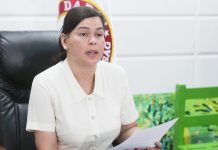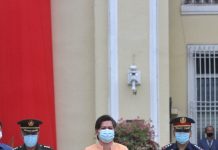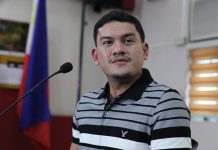The Mindanao Development Authority (MinDA) has again acknowledged the role of the mining industry in bringing progress to Southern Philippines.
“MinDA’s support for the mining industry in Mindanao is an agency position and it does not change with leadership,” said Olie Dagala, head of MinDA’s regional concerns management office, during a meeting with South Cotabato mining companies held in General Santos City last Thursday.
GRCO Isulan Mining Corp., Epoch China Mining, South Davao Development Company, Inc., Tribal Mining Corp., and Sagittarius Mines, Inc. met last week with the Mines and Geosciences Bureau’s Region 12 office and MinDA and sought for a clear statement of support from the latter ahead of the impending ban on open pit mining in South Cotabato.
It may be recalled that Antonino, who was then a congresswoman representing the 1st District of South Cotabato, together with congresswoman Daisy Fuentes of the 2nd District of the same province, and the late congresswoman Clara Lobregat of Zamboanga, strongly supported the enactment of the 1995 Philippine Mining Act.
“Secretary Antonino will formally launch soon a new economic road map for Mindanao and it identifies the mining industry as a key element for progress,” Dagala said.
Dagala assured the attendees that there is no stronger statement of support for the mining industry than this economic road map, a 20-year peace and economic framework. To achieve progress for Mindanao, the framework is anchored on the “sustainable use of the region’s natural resources,” among others.
The plan will also pursue a strategy on “environment for wealth creation,” citing Mindanao as rich in natural wealth. It also affirms that “environmental protection should both serve the common good and be economically beneficial as well.”
Documents show that the framework was crafted by socio-economic experts the likes of Cielito Habito, former head of the National Economic Development Authority (NEDA); Antonio LaVina, former environment undersecretary; Jesuit priest Albert Alejo, a Zamboanga-based environmentalist; Oblate priest Eliseo Mercado, a leading Mindanao peace proponent and advocate based in Cotabato; and noted historian and author Rudy Rodil.
“But the entire framework is a result of the various consultations we conducted in and around Mindanao,” Dagala said.






